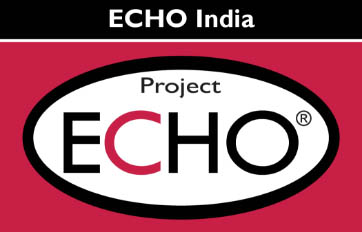Author: Dr. Sandeep Bhalla, Vice President, Projects, ECHO India
In an era where preventive healthcare is gaining ground, the need to instill awareness and healthy behaviors from a young age has become a cornerstone of public health policy. Recognizing this, ECHO India, a non-profit dedicated to capacity building in healthcare and education, has joined forces with the National Health Mission (NHM) West Bengal, the Education Department of West Bengal, and the Kolkata Municipal Corporation (KMC) to enhance the School Health and Wellness Programme, a core initiative under Ayushman Bharat. Launched in Kolkata on 27th August 2024, this partnership marks a significant step in fostering health and wellness among India’s younger generations.
The Urgent Need for School Health Programs in India
India’s population of over 253 million children in the 6-16 age range represents the world’s largest young demographic—a demographic that’s critical to the nation’s future growth and well-being【source: Census 2011, Ministry of Home Affairs】. Recognizing this, the School Health Program (SHP) under Ayushman Bharat is designed to address both emerging health risks and preventable health issues through a comprehensive school-based curriculum.
Data from the Ministry of Health and Family Welfare (MoHFW) highlights that a large proportion of preventable diseases, such as malnutrition, substance abuse, and mental health issues, originate during adolescence, often due to lack of awareness and poor health behaviors【source: MoHFW, National Health Policy 2017】. According to NHM guidelines, the SHP provides health education tailored to young minds to ensure students acquire knowledge about nutrition, hygiene, mental health, and substance abuse, helping foster a healthier and more informed generation from the outset【source: MoHFW, Operational Guidelines on School Health Programme】.
ECHO India’s Role in Amplifying the School Health Program
ECHO India’s collaboration with NHM West Bengal, KMC, and the Education Department goes beyond traditional classroom education. By leveraging its proven ‘Hub and Spoke’ learning model, ECHO India equips educators to become health and wellness champions. Through comprehensive digital training, teachers are prepared to educate students on 11 essential thematic areas, including “Growing up Healthy,” “Nutrition,” “Health and Sanitation,” “Emotional Well-being,” and “Prevention of Substance Abuse.”
This training, supported by experts from KMC, empowers teachers to address pressing adolescent health concerns effectively. ECHO’s digital learning platform, iECHO, enables rapid and efficient delivery of capacity-building resources, ensuring that every educator, regardless of their location, has access to high-quality, interactive training materials. The digital infrastructure allows for real-time learning and feedback, fostering a model of “All Teach, All Learn,” where educators and and through them, the students benefit from a collaborative learning experience.
Local Partnerships and Community-Centric Approach
In West Bengal, ECHO India has a history of collaborating with key stakeholders to enhance healthcare capacity in areas such as tuberculosis, mental health, and infection prevention. These partnerships are pivotal to the success of the SHP, as they provide contextual understanding and trust needed for community-wide change. A study by the National Institute of Health and Family Welfare (NIHFW) highlights that local engagement and culturally relevant health interventions are significantly more effective in ensuring community participation and behavior change【source: NIHFW, Community Health Report 2021】.
ECHO’s partnership with local stakeholders ensures that health education under the SHP is aligned with community values and addresses localized health challenges. Through this approach, ECHO India is actively contributing to a future where health education begins at the grassroots level and extends into the wider community, making healthcare more accessible, equitable, and resilient.
Building a Healthier Future for Generations to Come
The School Health Program initiative under Ayushman Bharat, supported by ECHO India, demonstrates our commitment to improving health outcomes at the grassroots level. By investing in educators as health mentors, ECHO India’s model creates a ripple effect, ensuring health education reaches every corner of the community. Evidence from the Lancet’s analysis of Ayushman Bharat highlights the economic benefits of investing in school health education, noting that for every rupee invested, India saves significantly in healthcare costs over the long term【source: The Lancet, “Ayushman Bharat Impact Analysis,” 2020】.
As we work towards touching 400 million lives by the end of 2025, this school health initiative is a key pillar in achieving a healthier, more informed India. Our collaboration in West Bengal serves as a model for nationwide expansion, and we are committed to expanding our partnerships, enhancing digital learning, and scaling impactful programs that empower healthcare and education systems to become more resilient, accessible, and equitable.
